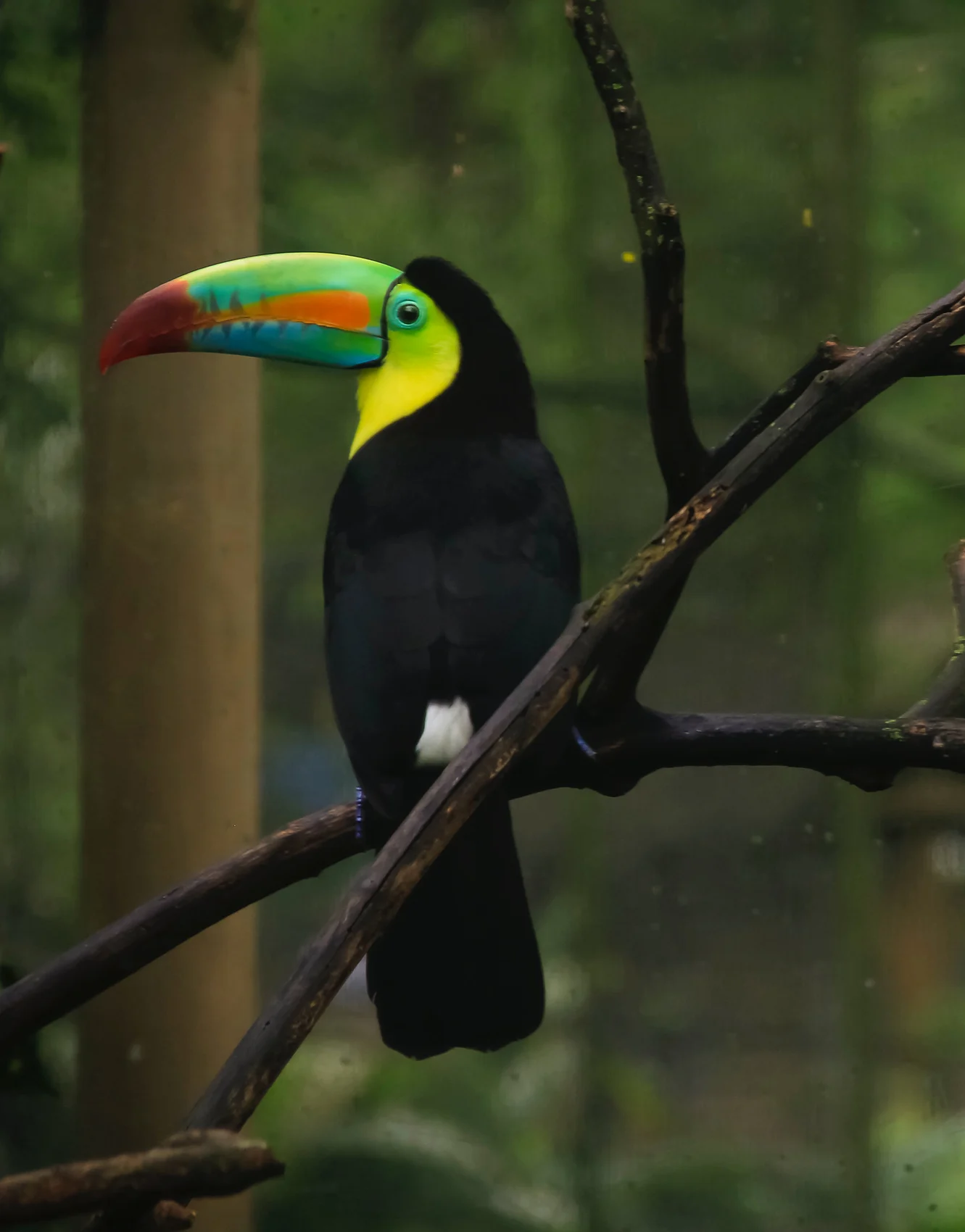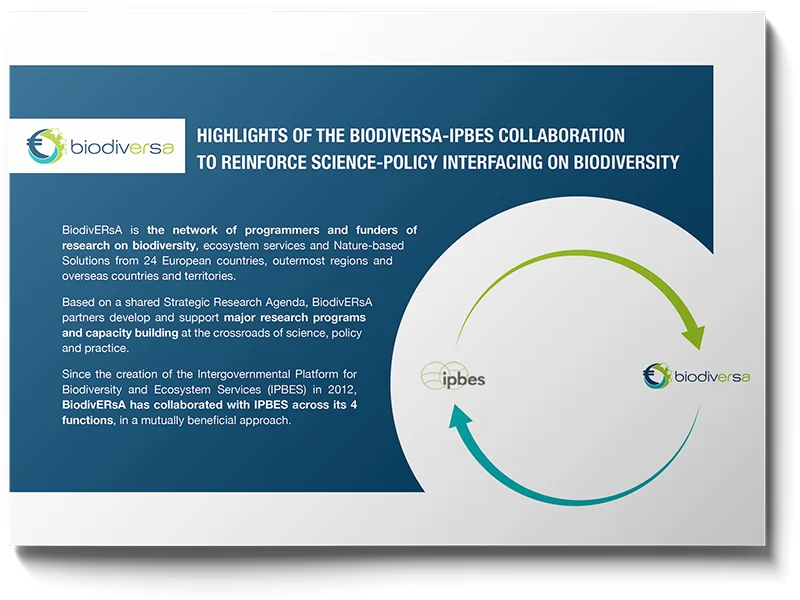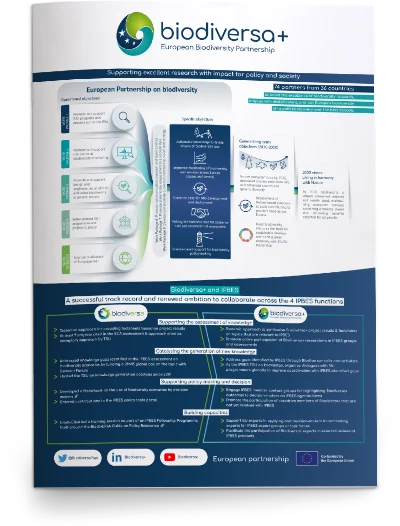IPBES and Biodiversa+

In line with its objective to reinforce the science-policy interface on biodiversity – including at the global level, Biodiversa+ engages with the Intergovernmental Science-Policy Platform on Biodiversity and Ecosystem Services (IPBES).
Biodiversa+ has been contributing to the four main functions of IPBES (knowledge assessment, policy support, strengthening of knowledge foundations, and capacity building) since its start in 2012. More concretely, the collaboration between Biodiversa+ and IPBES led to the following activities:
- Biodiversa+ produced factsheets on its research results to feed into IPBES assessments.
- Biodiversa+ supported knowledge generation to close knowledge gaps identified by IPBES. An example of this fruitful collaboration is the launch of the BiodivScen Call for Proposals which addressed the knowledge gaps identified in the IPBES Methodological Assessment on Scenarios and Models (2016). Biodiversa+ was also selected to host the “Catalysing Knowledge Generation” part of the IPBES Knowledge and Data Technical Support Unit (TSU).
- Biodiversa+ promoted the science-policy interface by supporting the development and use of policy tools and methods, notably with the development of the policy handbook.
- Biodiversa+ developed capacity building capacities at the science-policy interface.
Since 2019, Biodiversa+ has been hosting the “Catalysing Knowledge Generation” part of the IPBES TSU on knowledge and data, which main objective is to increase awareness of IPBES knowledge gaps and facilitate their mobilisation by research programmers and funders, by easing access and establishing dialogues between IPBES assessment experts and research programmers and funders around the world working on biodiversity.
The TSU supports the Knowledge Generation Task Force, composed of 14 worldwide experts selected by the Multidisciplinary Expert Panel (MEP) and the Bureau of IPBES.
Review and further develop a process to catalyse the generation of new knowledge, giving guidelines and templates for the identification of knowledge gaps in IPBES assessments
Support IPBES assessments authors in the process of knowledge gaps identification
Promote the uptake of identified knowledge needs by relevant external organisations and initiatives, through the organisation of dialogues
Monitor the impact of knowledge generation catalysis efforts to effectively fill identified gaps

